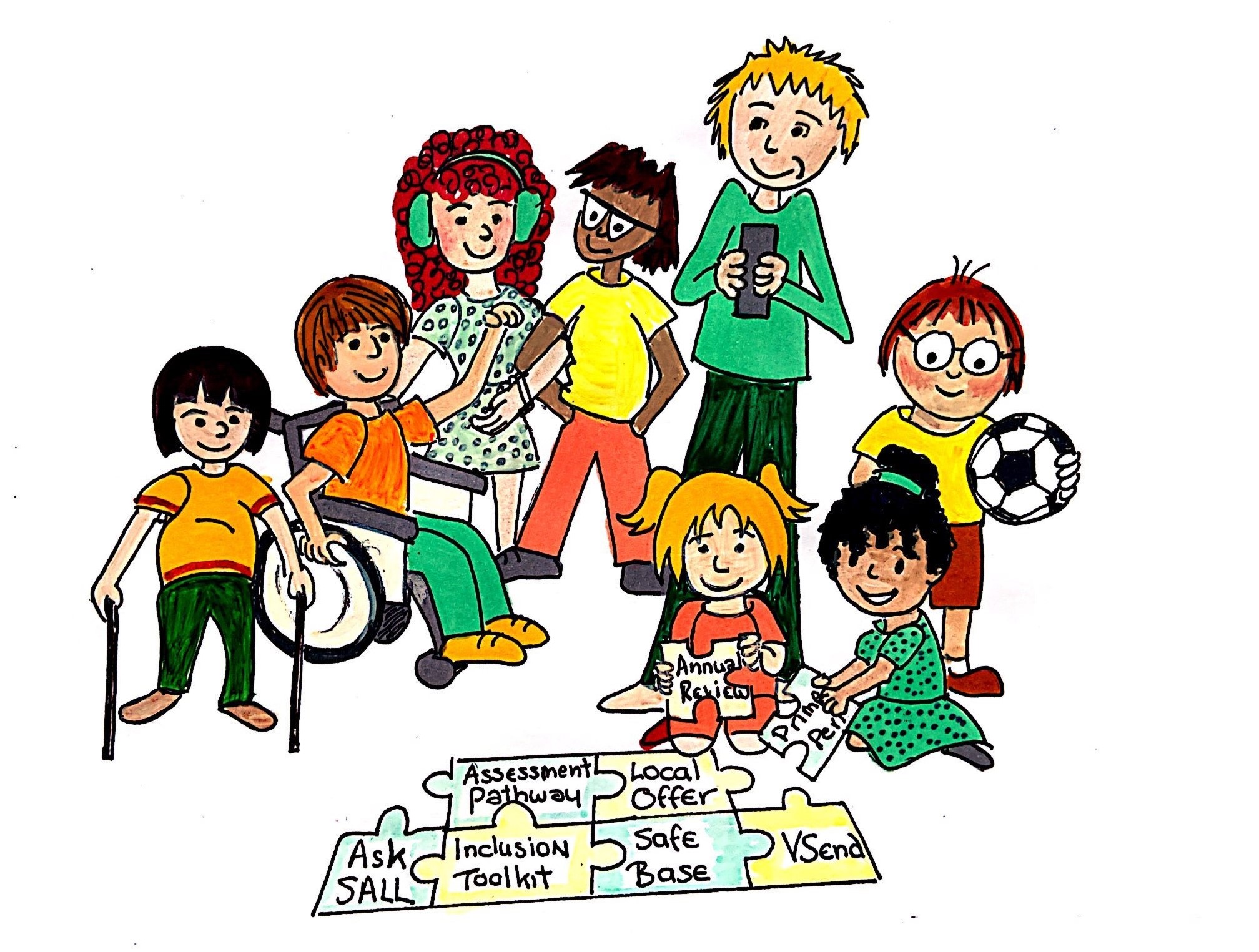Level 3-4 strategies to support targeted interventions
High quality teaching strategies, approaches and adaptations for pupils should be implemented and supplemented
0-5
- in addition to the basic strategies, these children are likely to enhanced adult support
- for checking of specialist equipment
- to monitor understanding of language
- to monitor and support instructions
- to prepare and provide visual resources
- to reinforce key vocabulary and concepts
- to provide additional opportunities within play to develop early speech, language, literacy and listening skills
- to develop social skills
- on-going opportunities for individual support focused on specific targets with reinforcement in whole class activities to aid transfer of skills
- flexibility of groupings allows for buddy support, good role models and focused teaching
- further modification of level, pace, amount of adult talk to address child’s identified need
- advice from external agencies is implemented in the classroom or setting
- there may be need for very structured and multi-sensory approaches to learning and enhanced opportunities to use technological aids
- use of visual clues such as pictures, props and objects to aid understanding
- the lead practitioner takes responsibility for supporting others to devise, deliver and evaluate a personalised programme that accelerates learning
- environmental considerations are made to meet the needs of all children. For example, seating position, personal space and classroom layouts, displays and signage
- may require advice or support from a speech and language therapist
- organisation strategies. For example, seating position, reducing background noise
- usually benefit from assistive listening devices such as radio aids and will require a speedy response to any problems with this technology
- daily personalised, small group learning to target identified areas of need with ongoing cycle of assess-plan-do-review. Close monitoring of the above by SENDCo
- need access to quiet working space for small group, checking of equipment and specialist assessment
- regular audiological reviews and monitoring will be undertaken by the Health Authority
- staff to have some basic Deaf Awareness training and key staff should attend training delivered by the Sensory Education Support Team. Training for staff may include bespoke training for staff in meeting needs of a deaf pupil
- hearing peer group to receive an informal session from SEST on how to be supportive and have some early awareness of deafness
- differentiated learning opportunities, for example use of radio aid at appropriate times
- key adults should have a good understanding of the individual’s hearing loss and how it affects their understanding and access to learning and social opportunities
- a monitoring system should be in place to assess child need, identify outcomes, implement support and monitor and evaluate progress
- National Deaf Children's Society has information about supporting young children with hearing impairment
5-16
- in addition to the basic strategies, these pupils are likely to need daily support from an adult in school. For example, teaching assistant or SENDCo
- for checking of specialist equipment
- to monitor understanding of language
- to monitor and support classroom instructions
- to prepare and provide visual resources
- to reinforce key vocabulary and concepts
- to deliver an individual programme particularly pre and post tutoring, speech, language, literacy and listening
- to develop social skills
- may require advice or support from a speech and language therapist
- classroom organisation strategies. For example seating position, reducing background noise
- usually benefit from assistive listening devices such as radio aids and will require a speedy response to any problems with this technology
- daily personalised or small group learning to target identified areas of need with ongoing cycle of assess-plan-do-review. Close monitoring of the above by SENDCo or class teacher
- need access to quiet working space for small group, checking of equipment and specialist assessment
- regular audiological reviews and monitoring will be undertaken by the Health Authority
- staff to have some basic Deaf Awareness training and key staff should attend training delivered by the Sensory Education Support Team. Training for staff may include bespoke training for staff in meeting needs of a deaf pupil
- hearing peer group to receive some advice on how to be supportive and have some awareness of deafness
- differentiated learning opportunities, for example, use of radio aid in all lessons
- may need alternative communication approach. For example, total communication, Signed Supported English (SSE) and oral or aural
- key adults should have a good understanding of the individual’s hearing loss and how it affects their understanding and access to learning and social opportunities


